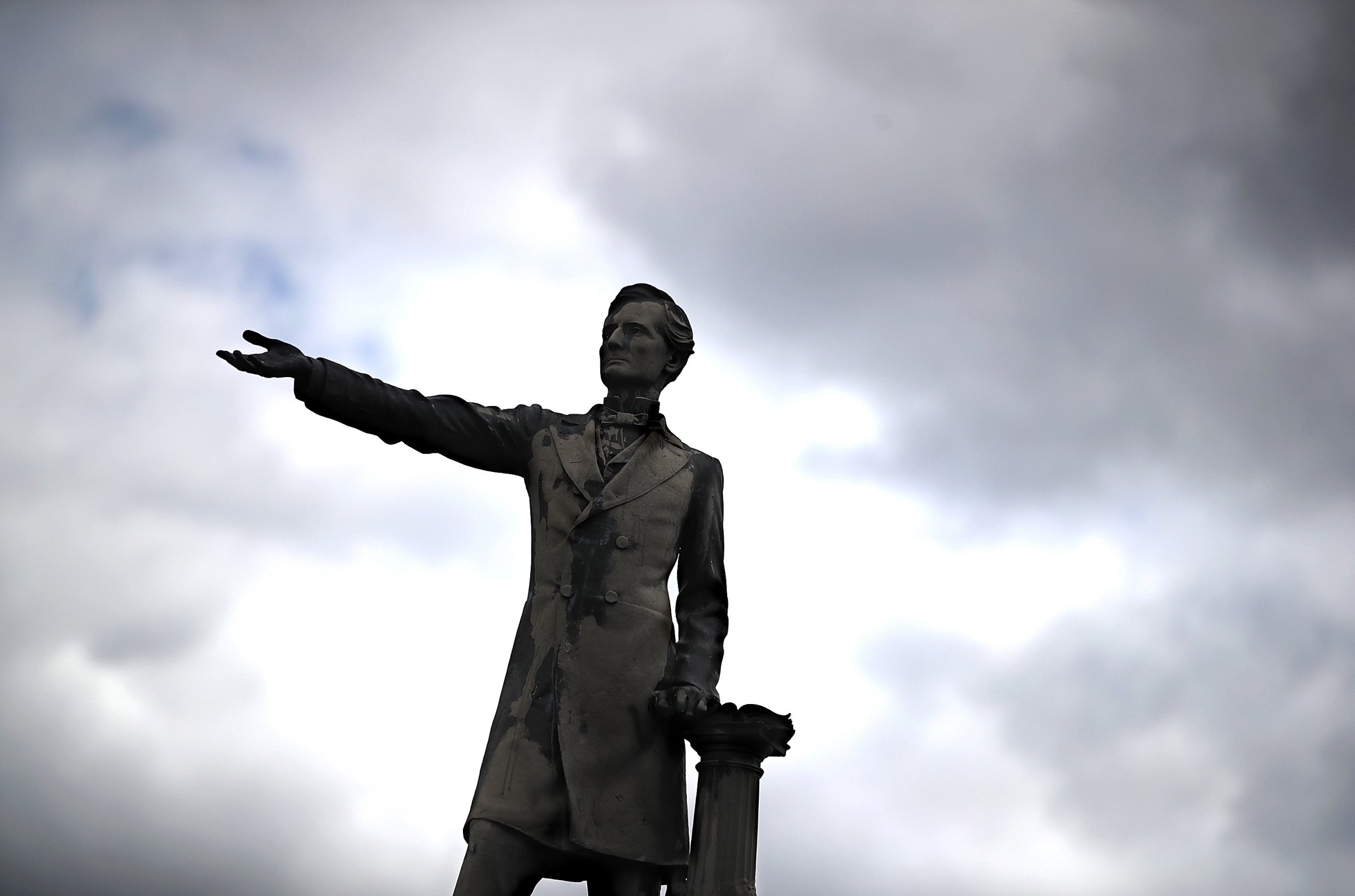
When Alabamians mark Jefferson Davis Day on Monday — the state is the only one that still specifically honors the 1808 birth of the Confederate president with its own official holiday — the controversial commemoration will fall just weeks after New Orleans removed a statue of Jefferson Davis as part of what’s become a nationwide push to remove Confederate monuments.
The changing national view of how Confederate leaders should be remembered is in some ways exemplified by Davis. In 2017, for example, New Orleans Mayor Mitch Landrieu expressed the view in speaking about the statues in his city that nation is still very much confronting the issues raised by the Civil War. “Centuries-old wounds are still raw because they never healed right in the first place,” he said.
A different sentiment was expressed in 1978 when President Jimmy Carter, a Democrat from the South, signed into law legislation posthumously restoring Davis’s full citizenship rights on Oct. 17, 1978. (General Robert E. Lee’s citizenship had been restored in 1976, under President Gerald Ford). In a statement on the decision, Carter explained that he saw the move as bringing to a close “the long process of reconciliation” that followed the Civil War:
Our Nation needs to clear away the guilts and enmities and recriminations of the past, to finally set at rest the divisions that threatened to destroy our Nation and to discredit the principles on which it was founded. Our people need to turn their attention to the important tasks that still lie before us in establishing those principles for all people.
Debates over restoring Davis’ citizenship date back to the 1870s, but a 1872 law prevented high-ranking Confederate officials like him from voting or holding public office. He said during his lifetime that he would not request a pardon to get those rights back — a devotion to his cause that in fact contributed to the later movement to celebrate his birthday. He had even said during his lifetime that he would not request a pardon to get his citizenship rights back. For example, in 1884, the former Mississippi U.S. Senator said, “‘Tis been said that I should apply to the United States for a pardon, but repentance must precede the right of pardon, and I have not repented,” in an address to the state legislature. “Remember as I must all which has been lost, disappointed hopes, and crushed aspirations, yet I deliberately say, If I were to do it over again, I would do just as I did in 1861.”
A century later, it wasn’t that Americans in the mid-1970s had suddenly become more supportive of the cause that Davis and Lee fought for — in fact, the civil rights and peace movements were in full force — yet, some contend, this period of increased political awareness was related to the movement restore the citizenship of Confederate leaders.
“Their willingness to oppose the federal government because of principle struck a responsive note in a nation disillusioned by Vietnam, Watergate, and the Church Committee hearings,” Francis MacDonnell, a professor of history at Southern Virginia University, argues in a paper on the pardoning of Lee and Davis. “Ultimately, the national sense that the government had let down — even betrayed — average Americans helped create a favorable climate for legislation extending clemency.”
Carter used the same this principle when he expanded amnesty for Vietnam draft evaders. As he said at the time: “I have a historical perspective about this question. I come from the South. I know at the end of the War Between the States there was a sense of forgiveness for those who had not been loyal to our country in the past, and this same thing occurred after other wars as well.”
MacDonnell, however, makes a point that the Lee and Davis pardons were slightly different: though Lee had later in his life worked for reconciliation and “he wanted his citizenship back and he probably deserved it,” Davis on the other hand ” never wanted to surrender and favored turning to guerilla warfare.”
But, though Davis may not have wanted reconciliation, the nation in the 1970s did.
More Must-Reads From TIME
- The 100 Most Influential People of 2024
- The Revolution of Yulia Navalnaya
- 6 Compliments That Land Every Time
- What's the Deal With the Bitcoin Halving?
- If You're Dating Right Now , You're Brave: Column
- The AI That Could Heal a Divided Internet
- Fallout Is a Brilliant Model for the Future of Video Game Adaptations
- Want Weekly Recs on What to Watch, Read, and More? Sign Up for Worth Your Time
Write to Olivia B. Waxman at olivia.waxman@time.com